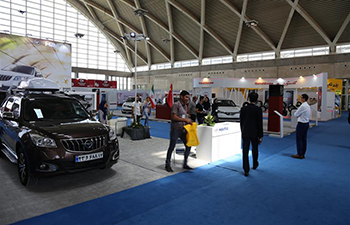BERLIN, July 11 (Xinhua) -- Stuttgart will become the first major city in Germany to ban old diesel vehicles from its streets in 2019, the state government of Baden-Wuerttemberg announced on Wednesday.
The ban will be enacted from Jan. 1, 2019 onwards and applies to diesel vehicles fitted with either "Euro 4" or older engine types. Newer engines of the type "Euro 5" are exempted from the measures but may be included at a later point if nitrogen oxide (NOx) emissions levels fail to fall below regulatory limits set by the European Union (EU).
Stuttgart is the capital of Baden-Wuerttemberg, a German state ruled by a regional coalition government of the Green party and the Christian Democratic Union (CDU)) that needs to take decisive action against urban NOx pollution on account of its environment targets. The city is also home to the German carmakers Daimler AG and Porsche that stand accused of emission-cheating practices in the ongoing "dieselgate" scandal.
The city's announcement follows a court ruling by Germany's Federal Administrative Court back in February which granted municipal governments the right to unilaterally impose diesel driving bans as a means to ensure compliance with EU clean air regulations.
NOx levels currently exceed binding EU limits in several German cities and have prompted the EU commission to file a law suit against the federal government in Berlin at the European Court of Justice (CJEU). So far, Angela Merkel's (CDU) governing cabinet has been reluctant to confront the country's significant automotive industry although the Federal Environmental Agency (UBA) estimates that diesel cars are responsible for more than 50 percent of harmful nitrogen oxide emissions in the Germany.
Unlike in Hamburg, where old diesel cars are only barred from accessing parts of two streets in the center, the Stuttgart ban covers the entirety of city. However, residents and craftspeople will benefit from a grace period until April 1, 2019 while taxis, busses, and vehicles that are needed to perform important public services such as waste collection are not affected by the ban at all.
The state government of Baden-Wuerttemberg further promised to unveil a catalogue of supplementary measures to address urban air pollution. Measures would include an expansion of public transportation and electric mobility as well as new road surfaces and noise barriers which bind airborne gases released by cars.













